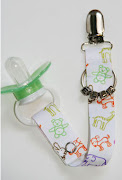Encouragement for Healthier Eating
I thought you might enjoy having this podcast "from the vault" on the subject of healthier eating. Most of us are gearing up to eat healthier as part of our New Year Resolutions, so hopefully this will give you some practical, no-fail ideas for getting started!
Click here to go listen to the show
You Don't Want to Miss This
I hope you had a great Christmas and that you are gearing up for a fabulous 2009. I sure am!
I wanted to let you know that on January 1 all of my newsletter subscribers will be able to get a fabulous free gift from me. This is something that has NEVER been a freebie before, costs a good bit of money when purchased at the regular price, and you cannot get it anywhere else. You simply will not want to miss getting this! So, if you are not yet signed up on the NEW newsletter service, please take a couple of seconds to sign up (to the upper left of this page). Feel free to tell your friends and spread the word. People will LOOOVE getting this goodie completely FREE, but that deal is only good for one day.
Also, when you get set up with the new newsletter service you'll also be eligible to purchase anything (and everything) in stock at sale prices til the end of 2008. You can stock up on your favorite goodies, future gifts, vitamins, and energy boosters right now and help me clear off the shelves before I have to pay taxes on everything in stock at the end of the year. :) (My loss--your gain)
Have fun!
Why Short Cat-Naps Are Not Good Enough
By Elizabeth Pantley, Author of The No-Cry Nap Solution
If your child’s naps are shorter than an hour and a half in length, you may have wondered if these brief naps provide enough rest for your little one. You might suspect that these catnaps aren’t meeting your child’s sleep needs – and you would be right. The science of sleep explains why a short nap takes the edge off, but doesn’t offer the same physical and mental nourishment that a longer nap provides.
It takes between 90 and 120 minutes for your child to move through one entire sleep cycle, resulting in a Perfect Nap. It has been discovered that each stage of sleep brings a different benefit to the sleeper. Imagine, if you will, magic gifts that are awarded at each new stage of sleep:
Stage 1 - Very light sleep
Lasts 5 to 15 minutes
The gifts:
Prepares body for sleep
Reduces feelings of sleepiness
Stage 2 - Light to moderate sleep
Lasts up 15 minutes
The gifts:
Increases alertness
Improves motor skills
Stabilizes mood
Slightly reduces homeostatic sleep pressure (The biological process that creates fatigue and irritability.)
Stage 3 - Deep sleep
Lasts up to 15 minutes
The gifts:
Strengthens memory
Release of growth hormone
Repair of bones, tissues and muscles
Fortification of immune system
Regulates appetite
Releases bottled up stress
Restores energy
Reduces homeostatic sleep pressure
Stage 4 – Deepest sleep
Lasts up to 15 minutes
The gifts:
Same benefits as Stage 3, but enhanced
Next Stage – Dreaming
Lasts up to 9 to 30 minutes
The gifts:
Transfers short-term memory into long-term memory
Organizes thoughts
Secures new learning
Enhances brain connections
Sharpens visual and perceptual skills
Processes emotions
Relieves stress
Inspires creativity
Boosts energy
Reduces homeostatic sleep pressure
Longer naps
For as long as your child sleeps
The gifts:
Repeat all of the above stages in cycles
In order for your child to receive all of these wonderful gifts he must sleep long enough to pass at least once through each stage of sleep. Longer naps will encompass additional sleep cycles and provide a continuous presentation of gifts.
Newborn babies have unique cycles that slowly mature over time. A newborn sleep cycle is about 40 to 60 minutes long, and an infant enters dream sleep quickly, skipping several sleep stages. Infants need several sleep cycles to receive their full allotment of gifts. If your infant is sleeping only 40-60 minutes at naptime it is an indication that your baby is waking between cycles instead of returning to sleep on his own. We’ll cover a plethora of ideas to help your baby learn to go back to sleep without your intervention.
Now you can clearly see why a short nap doesn’t provide your baby or young child the best benefits of napping. You can also see why a mini-nap can fool you into thinking it is enough – since the very first five to fifteen minutes reduce feelings of sleepiness and bring that whoosh of second-wind energy that dissipates quickly, resulting is fussiness, crying, crankiness, tantrums and whining.
*~*~*~*~*~*~*~*~*~*~*~*~*~*~*~*~*~*~*~*~*~*~*~*~*~*~*~*~*~*~*
This is a copyrighted excerpt from The No-Cry Nap Solution: Guaranteed Gentle Ways to Solve All Your Naptime Problems by Elizabeth Pantley. (McGraw-Hill, December 2008). Used with permission.
First-Born Jealousy
By Elizabeth Pantley, Author of the No-Cry Sleep Solution and Gentle Baby Care
Question: Our first-born is showing extreme jealousy towards the new baby. He’s obviously mad at us for disrupting the predictable flow of his life with this new challenger for our attention. How can we smooth things out?
Think about it: Before the baby entered your family, your toddler was told he’d have a wonderful little brother to play with, and how much fun it would be. Then the little brother is born and your toddler is thinking, “Are you kidding me? This squirming, red-faced baby that takes up all your time and attention is supposed to be FUN?” He then “plays” with the baby in the only ways he knows how. He plays catch. You yell at him for throwing toys at the baby. He plays hide-and-seek. You yell at him to get the blanket off the baby. He gives the kid a hug, and you admonish him to be more careful. Is it any wonder that your toddler is confused?
Teach: Your first goal is to protect the baby. Your second, to teach your older child how to interact with his new sibling in proper ways. You can teach your toddler how to play with the baby in the same way you teach him anything else. Talk to him, demonstrate, guide and encourage. Until you feel confident that you’ve achieved your second goal, however, do not leave the children alone together. Yes, I know. It isn’t convenient. But it is necessary, maybe even critical.
Hover: Whenever the children are together, “hover” close by. If you see your child about to get rough, pick up the baby and distract the older sibling with a song, a toy, an activity or a snack. This action protects the baby while helping you avoid a constant string of “Nos,” which may actually encourage the aggressive behavior.
Teach soft touches: Teach the older sibling how to give the baby a back rub. Tell how this kind of touching calms the baby, and praise the older child for a job well done. This lesson teaches the child how to be physical with the baby in a positive way.
Act quickly: Every time you see your child hit, or act roughly with the baby, act quickly. You might firmly announce, “No hitting, time out.” Place the child in a time-out chair with the statement, “You can get up when you can use your hands in the right way.” Allow him to get right up if he wants – as long as he is careful and gentle with the baby. This isn’t punishment, after all. It’s just helping him learn that rough actions aren’t going to be permitted.
Demonstrate: Children learn what they live. Your older child will be watching as you handle the baby and learning from your actions. You are your child’s most important teacher. You are demonstrating in everything you do, and your child will learn most from watching you.
Praise: Whenever you see the older child touching the baby gently, make a positive comment. Make a big fuss about the important “older brother.” Hug and kiss your older child and tell him how proud you are.
Watch your words: Don’t blame everything on the baby. “We can’t go to the park; the baby’s sleeping.” “Be quiet, you’ll wake the baby.” “After I change the baby I’ll help you.” At this point, your child would just as soon sell the baby! Instead, use alternate reasons. “My hands are busy now.” “We’ll go after lunch.” “I’ll help you in three minutes.”
Be supportive: Acknowledge your child’s unspoken feelings, such as “Things sure have changed with the new baby here. It’s going to take us all some time to get used to this.” Keep your comments mild and general. Don’t say, “I bet you hate the new baby.” Instead, say, “It must be hard to have Mommy spending so much time with the baby.” or “I bet you wish we could go to the park now, and not have to wait for the baby to wake up.” When your child knows that you understand her feelings, she’ll have less need to act up to get your attention.
Give extra love: Increase your little demonstrations of love for your child. Say extra I love yous, increase your daily dose of hugs, and find time to read a book or play a game. Temporary regressions or behavior problems are normal, and can be eased with an extra dose of time and attention.
Get ‘em involved: Teach the older sibling how to be helpful with the baby or how to entertain the baby. Let the older sibling open the baby gifts and use the camera to take pictures of the baby. Teach him how to put the baby’s socks on. Let him sprinkle the powder. Praise and encourage whenever possible.
Making each feel special: Avoid comparing siblings, even about seemingly innocent topics such as birth weight, when each first crawled or walked, or who had more hair! Children can interpret these comments as criticisms.
Take a deep breath and be calm. This is a time of adjustment for everyone in the family. Reduce outside activities, relax your housekeeping standards, and focus on your current priority, adjusting to your new family size.
Excerpted with permission by NTC/Contemporary Publishing Group Inc. from Perfect Parenting, The Dictionary of 1,000 Parenting Tips by Elizabeth Pantley, copyright 1999
http://www.pantley.com/elizabeth
Important Announcement for my Newsletter Subscribers
When you take 5 seconds to sign up for the new service, you'll be rewarded with some nice Thank You gifts that are perfect for this time of year.
News about Grandpa Read's Quiet Time Tales

For those of you interested in the wonderful Grandpa Read's Quiet Time Tales, we were disappointed to find out that the product will not be here in time for us to ship for Christmas. This was a glitch on the part of the manufacturing process and the state of the economy. Basically, small businesses like Grandpa Read's had their orders bumped back in favor of huge vendors like WalMart and Target. Instead, we expect to have everything ready to ship in mid-January.
The GOOD NEWS is that now the special sale pricing continues on into January, PLUS I've decided to sweeten the deal by adding a FREE Grandpa Read Music CD along with every purchase of the 12-DVD set.
If you haven't already watched the sample video, please gather your children around and check it out. This is very sweet that I am SO eager to share with you!
Newborn Babies and Sleep
By Elizabeth Pantley, author of The No-Cry Sleep Solution
Congratulations on the birth of your new baby. This is a glorious time in your life – and a sleepless time too. Newborns have very different sleep needs than older babies. This article will help you understand your baby’s developing sleep patterns, and will help you have reasonable expectations for sleep.
Read, Learn, and Beware of Bad Advice
Absolutely everyone has an opinion about how you should handle sleep issues with your new baby. The danger to a new parent is that these tidbits of misguided advice (no matter how well-intentioned) can truly have a negative effect on our parenting skills and, by extension, our babies’ development…if we are not aware of the facts. The more knowledge you have the less likely that other people will make you doubt your parenting decisions.
When you have your facts straight, and when you have a parenting plan, you will be able to respond with confidence to those who are well-meaning but offering contrary or incorrect advice. So, your first step is to get smart! Know what you are doing, and know why you are doing it. Read books and magazines, attend classes or support groups – it all helps.
The Biology of Newborn Sleep
During the early months of your baby's life, he sleeps when he is tired, it’s that simple. You can do little to force a new baby to sleep when he doesn’t want to sleep, and conversely, you can do little to wake him up when he is sleeping soundly.
Newborn babies have very tiny tummies. They grow rapidly, their diet is liquid, and it digests quickly. Although it would be nice to lay your little bundle down at bedtime and not hear from him until morning, this is not a realistic goal for a tiny baby. Newborns need to be fed every two to four hours — and sometimes more.
Sleeping “through the night”
You may believe that babies should start "sleeping through the night" soon after birth. For a new baby, a five-hour stretch is a full night. Many (but not all) babies can sleep uninterrupted from midnight to 5 a.m. (Not that they always do.) This may be a far cry from what you may have thought "sleeping through the night" meant!
What's more, some sleep-through-the-nighters will suddenly begin waking more frequently, and it’s often a full year or even two until your baby will settle into an all-night, every night sleep pattern.
Falling Asleep at the Breast or Bottle
It is natural for a newborn to fall asleep while sucking at the breast, a bottle, or a pacifier. When a baby always falls asleep this way, he learns to associate sucking with falling asleep; over time, he cannot fall asleep any other way. This is probably the most natural, pleasant sleep association a baby can have. However, a large percentage of parents who are struggling with older babies who cannot fall asleep or stay asleep are fighting this powerful association.
Therefore, if you want your baby to be able to fall asleep without your help, it is essential that you sometimes let your newborn baby suck until he is sleepy, but not totally asleep. When you can, remove the breast, bottle, or pacifier from his mouth, and let him finish falling asleep without it. If you do this often enough, he will learn how to fall asleep without sucking.
Waking for Night Feedings
Many pediatricians recommend that parents shouldn't let a newborn sleep longer than four hours without feeding, and the majority of babies wake far more frequently than that. No matter what, your baby will wake up during the night. The key is to learn when you should pick her up for a feeding and when you can let her go back to sleep on her own.
Here’s a tip that is important for you to know. Babies make many sleeping sounds, from grunts to whimpers to outright cries, and these noises don’t always signal awakening. These are what I call sleeping noises, and your baby is asleep during these episodes.
Learn to differentiate between sleeping sounds and awake sounds. If she is awake and hungry, you’ll want to feed her as quickly as possible so she’ll go back to sleep easily. But if she’s asleep – let her sleep!
Help Your Baby Distinguish Day from Night
A newborn sleeps sixteen to eighteen hours per day, and this sleep is distributed evenly over six to seven sleep periods. You can help your baby distinguish between night sleep and day sleep, and thus help him sleep longer periods at night.
Have your baby take his daytime naps in a lit room where he can hear the noises of the day. Make nighttime sleep dark and quiet, except for white noise (a background hum). You can also help your baby differentiate day from night by using a nightly bath and a change into pajamas to signal the difference between the two.
Watch for Signs of Tiredness
Get familiar with your baby's sleepy signals and put her down to sleep as soon as she seems tired. A baby who is encouraged to stay awake when her body is craving sleep is an unhappy baby. Over time, this pattern develops into sleep deprivation, which complicates developing sleep maturity. Learn to read your baby’s sleepy signs -- such as quieting down, losing interest in people and toys, and fussing -- and put her to bed when that window of opportunity presents itself.
Make Yourself Comfortable
It’s a fact that your baby will be waking you up, so you may as well make yourself as comfortable as possible. Relax about night wakings right now. Being frustrated about having to get up won’t change a thing. The situation will improve day by day; and before you know it, your newborn won’t be so little anymore — she’ll be walking and talking and getting into everything in sight…during the day, and sleeping peacefully all night long.
Excerpted with permission by McGraw-Hill/Contemporary Publishing from The No-Cry Sleep Solution: Gentle Ways to Help Your Baby Sleep Through the Night by Elizabeth Pantley, copyright 2002 http://www.pantley.com/elizabeth





















